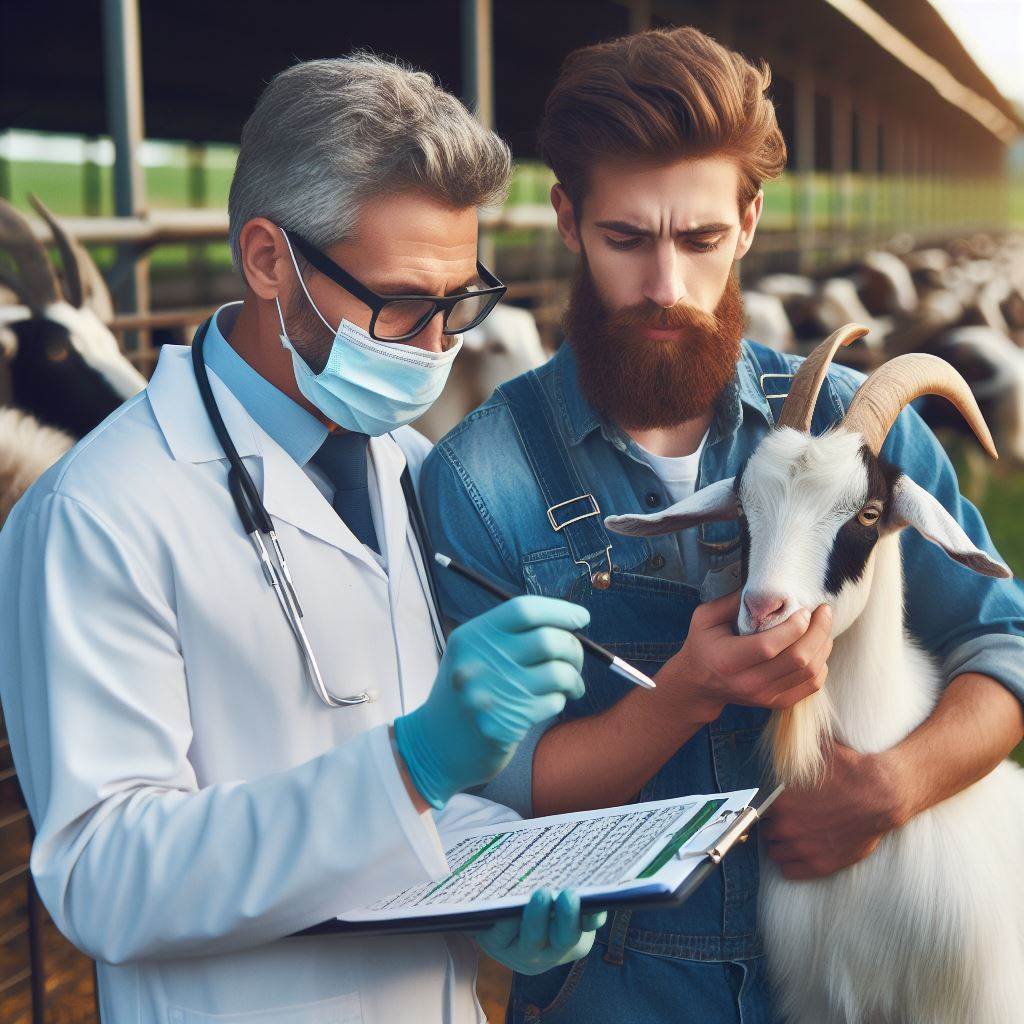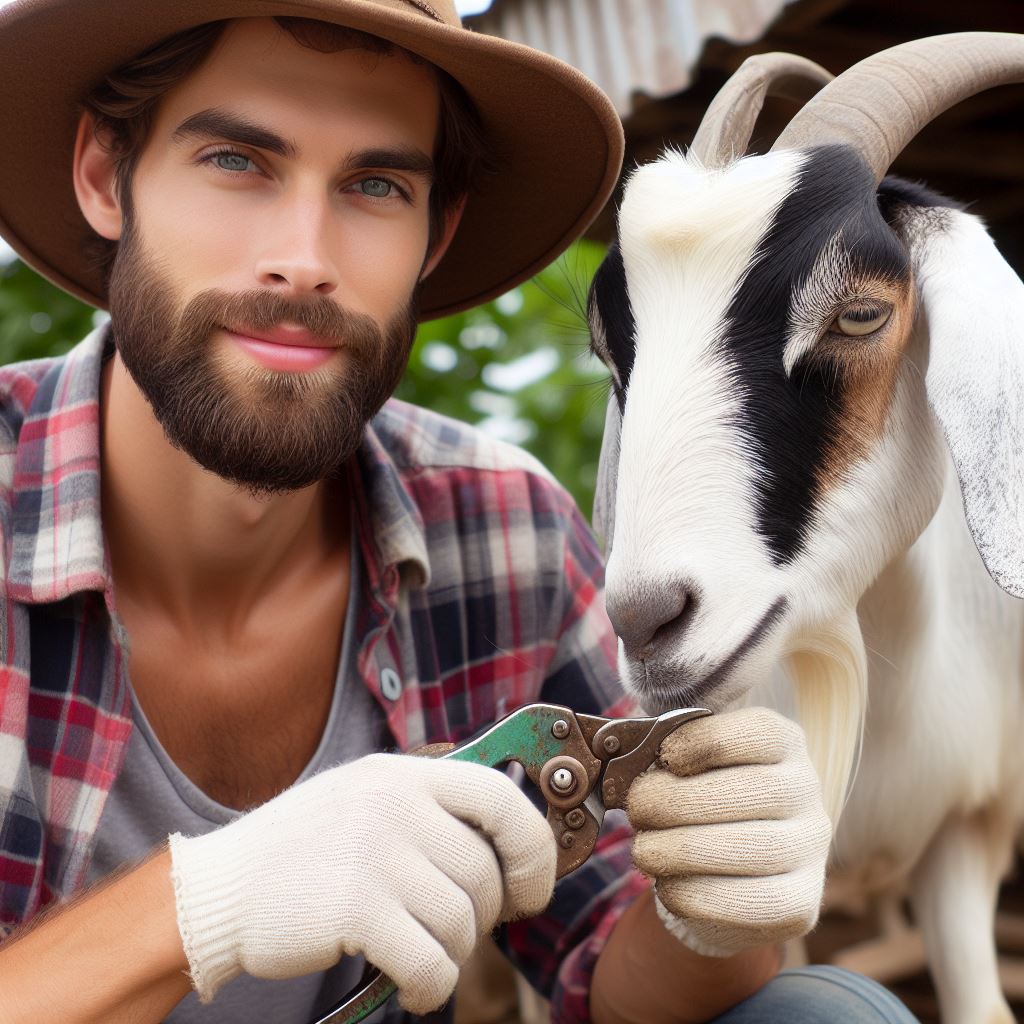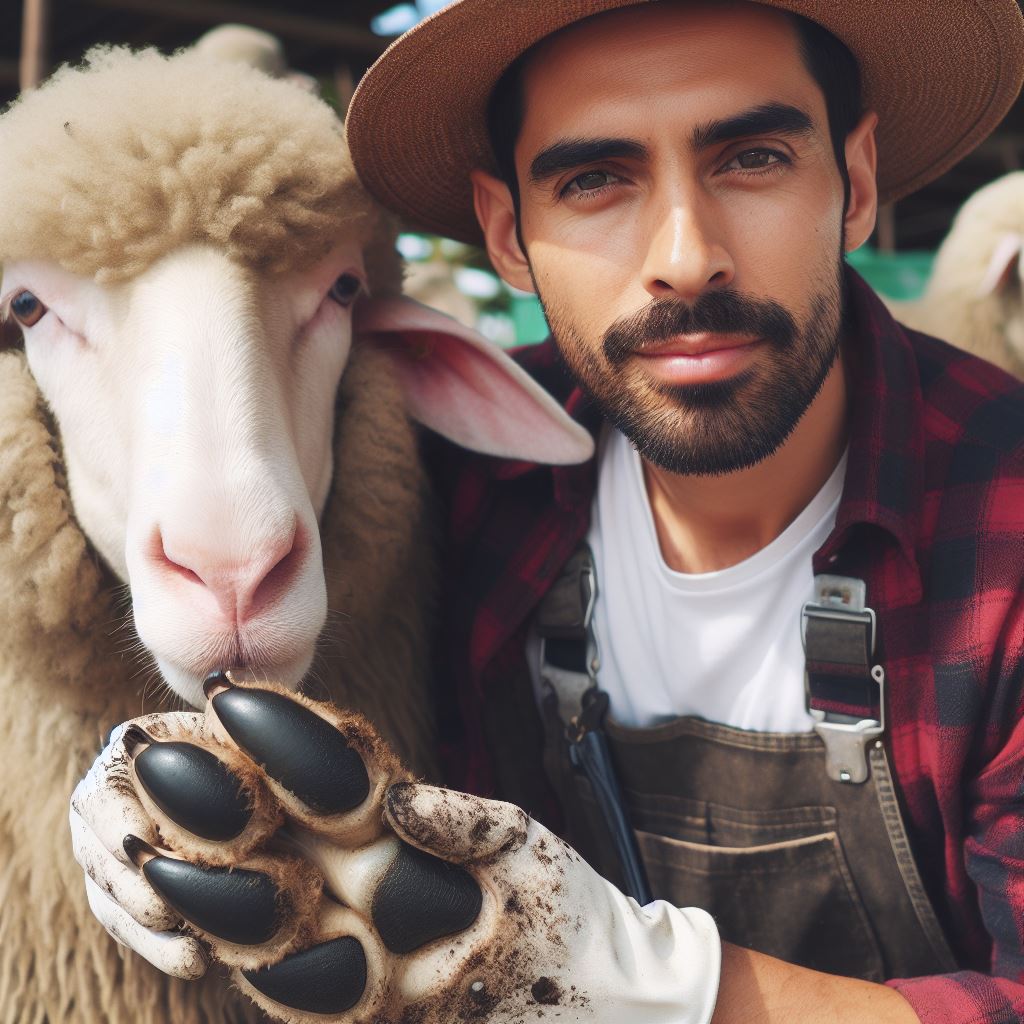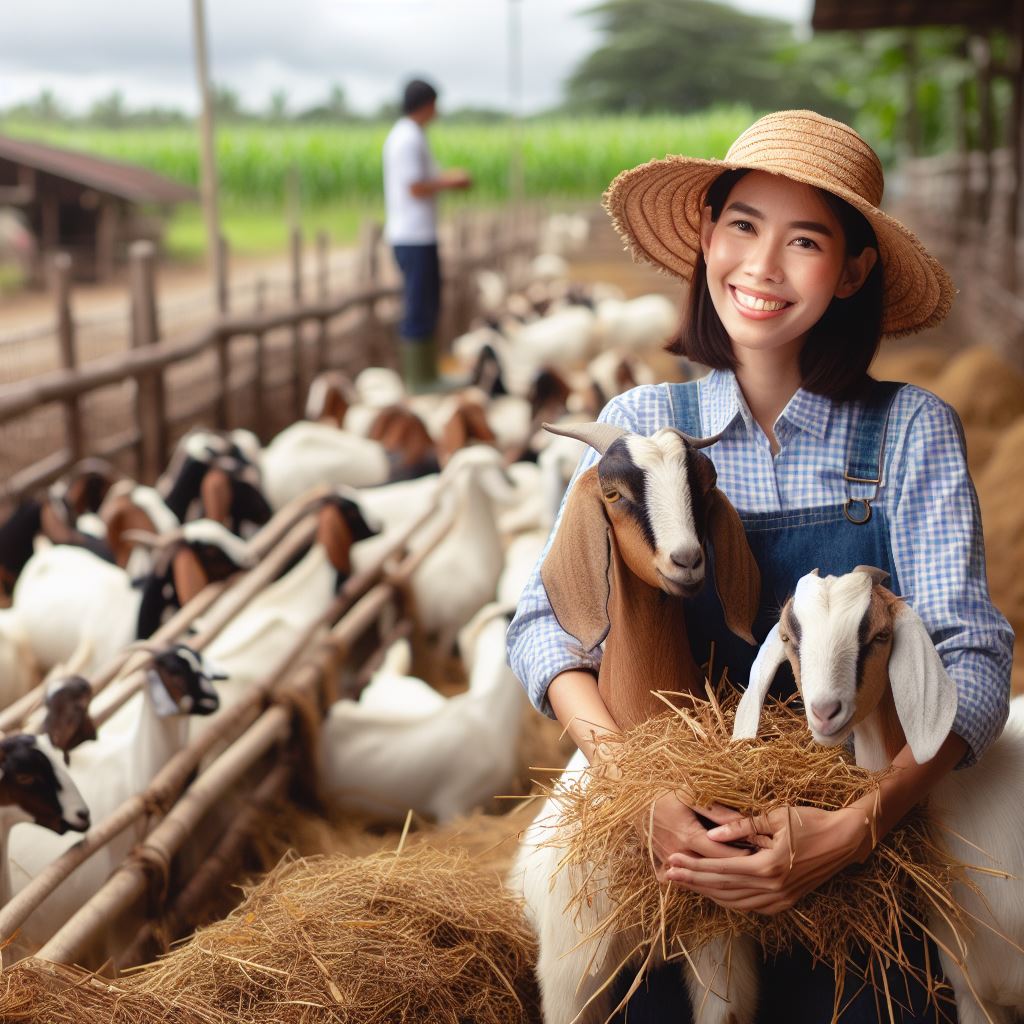Introduction
Winter care for sheep and goats is crucial to ensure their health and well-being during the cold months.
As the temperatures drop, animals become more susceptible to various health issues.
In this section, we will explore the importance of winter care for these animals and provide tips and guidelines to help you properly care for your flock.
Importance of winter care for sheep and goats
It is essential to prioritize winter care for sheep and goats because they have different requirements during this season.
The harsh weather conditions can lead to frostbite, hypothermia, and respiratory problems if not properly managed.
Additionally, pregnant and young animals are more vulnerable and need extra attention.
Brief explanation of the upcoming sections
The upcoming sections will cover different aspects of winter care, including shelter, nutrition, and health management.
We will discuss the importance of providing adequate and well-insulated shelters to protect the animals from extreme cold and wind.
Proper nutrition is also crucial, as animals need additional calories to maintain their body temperature.
Health management during winter involves regular monitoring for signs of illness, such as weight loss, coughing, or nasal discharge.
Vaccinations and deworming should be up to date to prevent the spread of diseases and parasites within the flock.
In essence, winter care for sheep and goats is vital for their overall well-being.
By implementing proper shelter, nutrition, and health management practices, you can ensure that your animals remain healthy and thrive throughout the winter season.
Stay tuned for the following sections, where we will delve deeper into each aspect of winter care.
Housing and Shelter
Providing Adequate Shelter
When it comes to providing adequate shelter, you have several options suitable for sheep and goats.
Transform Your Agribusiness
Unlock your farm's potential with expert advice tailored to your needs. Get actionable steps that drive real results.
Get StartedConsider barns, sheds, or three-sided structures that offer protection against harsh weather elements.
Ensure the shelter is spacious enough to accommodate all your animals comfortably.
Insulation and proper ventilation are crucial factors to consider in the design and maintenance of the shelter.
Good insulation helps retain warmth, while proper ventilation prevents excessive condensation and moisture buildup.
Monitor the temperature and humidity levels inside the shelter regularly to ensure optimal conditions.
Bedding and Cleanliness
Clean and dry bedding is vital for the well-being of your sheep and goats, especially during winter.
Dirty bedding can harbor bacteria and increase the risk of diseases, so proper maintenance is crucial.
Straw and wood shavings are common bedding materials for sheep and goats.
Avoid using cedar shavings as they may cause respiratory irritation in some animals.
Regularly remove soiled bedding and replace it with fresh layers to maintain cleanliness and hygiene.
Water Provision in Winter
Preventing water from freezing is essential to ensure your animals stay hydrated in winter.
Use insulated buckets or water heaters to keep the water temperature above freezing point.
Inspect the water source regularly to make sure it is functioning properly and the water is accessible.
In case the primary water source freezes or becomes inaccessible, having alternative water sources is crucial.
Transform Your Agribusiness Online Presence
Stand out with compelling content tailored to engage your audience and drive results. From blog posts to social media, we’ll create what your business needs to grow.
Get StartedConsider installing additional water troughs or using heated water dispensers to guarantee continuous water availability.
Provide your animals with fresh and clean water regularly to prevent dehydration.
By following these guidelines and ensuring proper housing, shelter, bedding, and water provision, you can provide your sheep and goats with a comfortable and safe environment during the winter season.
Remember to monitor the conditions regularly and make necessary adjustments to keep your animals healthy and happy.
Read: Shearing Techniques for Sheep: A Guide
Nutrition and Feeding
Winter brings unique challenges for sheep and goat owners, especially when it comes to their nutrition and feeding requirements.
Cold temperatures and limited forage availability can significantly impact these animals’ well-being.
In this section, we will discuss various strategies to ensure your sheep and goats receive the necessary nutrition during the winter months.
Adjusting the diet for winter
Increased energy requirements
Sheep and goats require more energy during winter to maintain their body temperature and cope with the cold.
You must consider this higher demand when planning their diet.
Sufficient forage availability
Forage serves as the foundation of their diet. Ensure there is an adequate supply of high-quality hay or other forage options throughout the winter.
This is essential for their overall health and proper digestion.
Providing a well-balanced diet
High-quality hay or forage options
Select top-quality hay that is clean, leafy, and free from molds or dust.
If hay availability is limited, consider alternatives like silage or haylage.
Unlock Farming Insights for Growth
Make smarter farming decisions with detailed reports on market trends, weather patterns, and soil health tailored to your farm's success. Boost productivity with actionable data.
Get ReportThese options provide necessary nutrients and keep your animals satisfied.
Supplementing with grains or concentrates
In addition to forage, supplement your sheep and goats’ diet with grains or concentrates.
These foods are energy-dense and can help meet their increased energy requirements.
Work with a nutritionist to find the right balance for your animals.
Ensuring adequate water intake
Preventing dehydration in cold weather
Even in winter, it is crucial to ensure your animals have access to fresh, clean water at all times.
Dehydration can occur even in cold weather, and it is essential to prevent this by checking water sources regularly.
Monitoring water accessibility and cleanliness
Check water troughs or buckets frequently to ensure they are not frozen.
Break the ice if necessary and provide heated water sources if temperatures drop significantly.
Clean the containers regularly to prevent contamination.
Proper nutrition and feeding play a vital role in maintaining the health and well-being of your sheep and goats, especially during the harsh winter months.
Adjusting their diet to meet increased energy requirements, providing high-quality forage and supplements, and ensuring access to clean water are essential steps to support their overall health and productivity.
Remember, every animal may have different nutritional needs based on factors such as age, breed, and health status.
Consult with a veterinarian or a qualified livestock nutritionist to develop a tailored feeding plan for your sheep and goats during winter.
Read: Essential Goat Breeds for American Farmers
Health and Veterinary Care
Taking care of the health and veterinary needs of sheep and goats during winter is crucial for their well-being.
Here are some important factors to consider:
Regular health check-ups
The importance of professional supervision
When it comes to the health of sheep and goats, it is vital to have regular check-ups conducted by a professional veterinarian.
A veterinarian can provide guidance, detect potential health issues early, and recommend necessary treatments.
Vaccinations and deworming schedules
To prevent common diseases and parasite infestations, it is essential to adhere to recommended vaccination and deworming schedules.
Vaccinations help build immunity against diseases, while deworming reduces the risk of internal parasites that thrive in colder months.
Preventing common winter ailments
Hypothermia and frostbite prevention
Sheep and goats are susceptible to hypothermia and frostbite during winter.
Providing adequate shelter with proper insulation is crucial.
The shelter should have good ventilation without drafts, a dry resting area, and sufficient space to minimize overcrowding.
Respiratory illness management
Winter brings an increased risk of respiratory illnesses for sheep and goats.
To manage these conditions, sufficient ventilation is important to maintain fresh air exchange.
At the same time, it’s essential to ensure no direct drafts affect the animals, as it can lead to respiratory discomfort.
Hoof care and maintenance
Regular trimming and checking for issues
Sheep and goats need regular hoof maintenance throughout the year, including winter.
Trimming hooves prevents overgrowth, which can lead to discomfort and lameness.
Additionally, it’s essential to check for any signs of infection or hoof issues that may require veterinary attention.
Preventing mud and ice accumulation
Mud and ice accumulation can lead to hoof issues and increase the risk of slips or falls.
Keeping barn and outdoor areas clean and dry helps minimize these risks.
Regularly removing mud and ice can prevent hoof problems and ensure the overall well-being of the animals.
By prioritizing regular health check-ups and veterinary care, preventing common winter ailments, and maintaining proper hoof care, sheep and goats can thrive during the colder months.
It is always advisable to consult with a veterinarian for personalized guidance and recommendations based on the specific needs of your flock.
Read: Managing Goat Health: Essential Tips
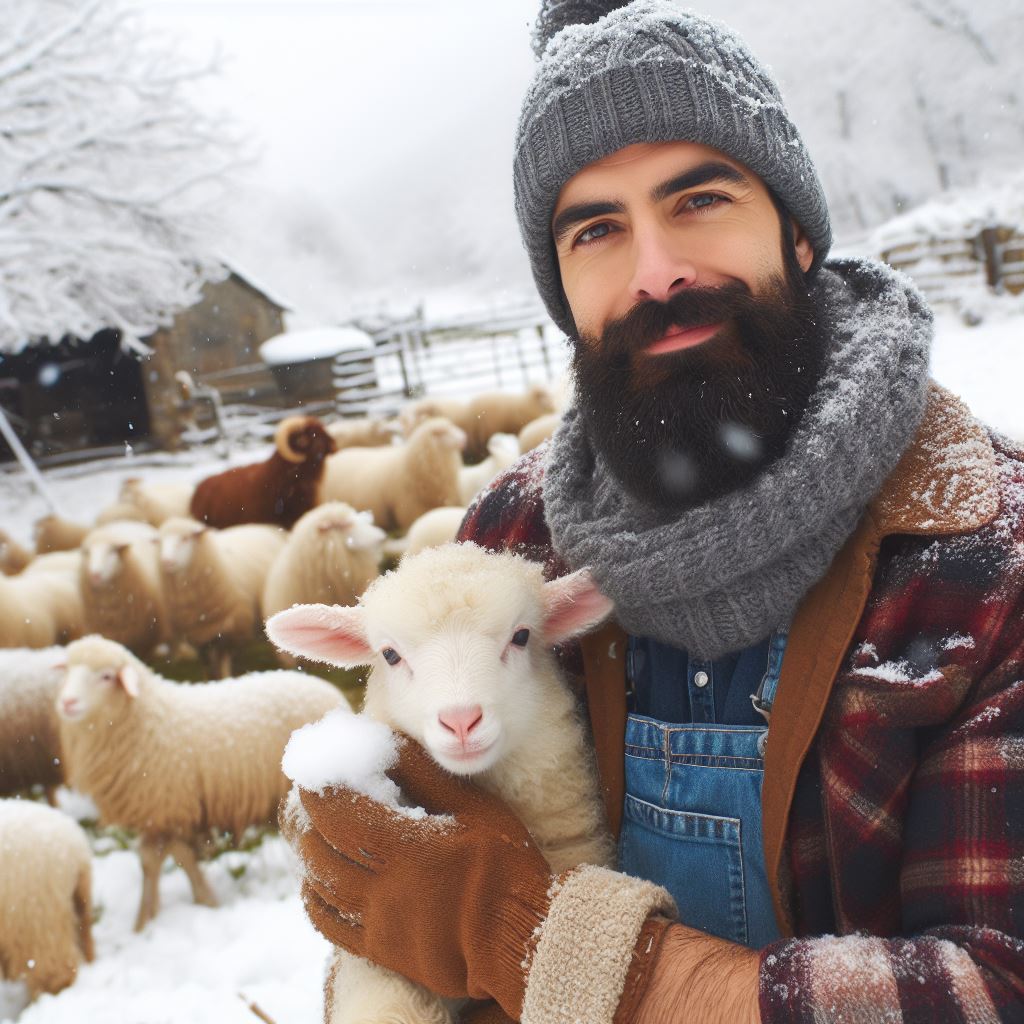
Exercise and Mental Stimulation
When it comes to caring for sheep and goats during the winter months, exercise and mental stimulation play a vital role in maintaining their overall well-being.
Both physical activity and mental engagement are crucial for their happiness and health.
Encouraging movement and exercise
Providing adequate space and obstacles
It is essential to offer enough space for your sheep and goats to move around freely.
A well-designed and secure area allows them to engage in various activities and prevents the confinement that can lead to mental and physical health problems.
Additionally, creating obstacles within their living area, such as ramps, platforms, and tunnels, encourages natural movement and play.
This stimulates their muscles and cognitive abilities, keeping them active and mentally sharp.
Understanding the importance of physical activity for overall health
Regular exercise not only helps prevent obesity but also improves the respiratory and cardiovascular systems of sheep and goats.
It promotes strong bones and muscles, enhances coordination, and supports overall fitness.
Moreover, physical activity ensures proper digestion and metabolism, reducing the risk of digestive issues such as bloating.
Exercise also aids in preventing common winter ailments like pneumonia by improving their immunity.
Supplying mental stimulation
Engaging in enrichment activities and providing toys for entertainment
Sheep and goats are intelligent animals that require mental stimulation to prevent boredom and the associated behavioral issues that may arise.
Providing enrichment activities such as puzzle feeders, hanging branches, or treat-dispensing toys keeps their minds engaged and active.
These activities mimic natural foraging behaviors and provide a sense of purpose, keeping them mentally stimulated and content.
Interaction with toys not only relieves stress but also helps prevent destructive behaviors caused by boredom.
Preventing boredom and addressing potential behavioral issues
Sheep and goats are social animals that thrive on interaction.
Regular human interaction, especially during the winter months, is crucial to prevent loneliness and boredom.
Spending time with them, offering gentle petting, and engaging in training sessions build trust and enhance their mental well-being.
Moreover, creating a stimulating environment with visual and auditory stimuli like mirrors, wind chimes, or even a radio playing soft music can help alleviate stress and prevent negative behaviors such as excessive vocalization or aggression.
By prioritizing exercise and mental stimulation, you ensure the overall health and well-being of your sheep and goats during the winter months.
Providing sufficient space, introducing obstacles, and engaging them with enrichment activities and toys will keep them physically and mentally active, preventing boredom and potential behavioral issues.
Read: Sheep Health Care Basics for Farmers
Conclusion
Importance of Winter Care Recap
Winter care for sheep and goats is of utmost importance to ensure their health and well-being during the cold months.
By implementing proper winter care practices, you can help your animals stay warm, healthy, and thriving.
Brief summary of key points discussed
In this blog post, we highlighted several key points to consider when caring for sheep and goats in winter.
We discussed the significance of providing adequate shelter, such as a well-insulated barn or shed, to protect them from harsh weather conditions.
We also emphasized the importance of proper nutrition, including a balanced diet of hay and grains, and access to fresh water at all times.
Additionally, we mentioned the significance of monitoring body condition and adjusting feed accordingly to prevent weight loss and maintain animal health.
Regular grooming is crucial during winter, as it helps remove dirt and debris that could cause skin irritations and infections.
We stressed the need to inspect and trim hooves regularly to avoid hoof problems and lameness.
Encouragement to implement proper winter care practices
To protect against external parasites, addressing their housing and applying appropriate treatments is essential.
We also recommended consulting with a veterinarian to develop a comprehensive parasite control plan for your flock or herd.
In general, the well-being of sheep and goats during winter greatly depends on proper care.
By providing them with suitable shelter, balanced nutrition, regular grooming, and parasite control, you can ensure their comfort and health. Remember, happy and healthy animals will thrive and provide you with years of joy and productivity.

